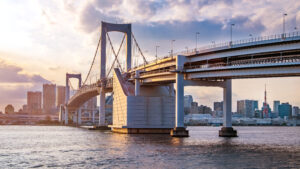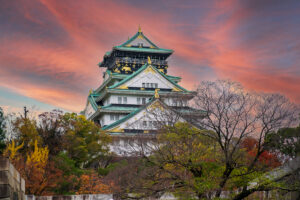In the heart of Japan’s bustling urban landscape, a unique phenomenon thrives: the internet cafe. While the concept of internet cafes is not exclusive to Japan, the nation has redefined and elevated the experience into a cultural staple that caters to tech-savvy users and weary travelers alike. With a blend of cutting-edge technology, comfort, and an array of services, Japan’s internet cafes serve as digital havens, drawing in a diverse clientele searching for both productivity and leisure. This article delves into the intricate world of Japan’s internet cafes, exploring their rise, evolution, and the unique experiences they offer.
The Rise of Internet Cafes in Japan’s Digital Culture
As the digital landscape in Japan expanded in the late 1990s and early 2000s, internet cafes emerged as an essential part of urban life. With the rapid growth of internet accessibility, these cafes became the go-to destinations for individuals seeking a space to connect, chat, or work online. The rise of mobile technology and smartphones only added to this trend, as many found themselves looking for complementary spaces that offered more than just internet access.
Interestingly, internet cafes in Japan are not merely a utilitarian response to a digital need; they are woven into the fabric of Japan’s unique digital culture. Often referred to as ‘manga kissa,’ these establishments cater to a variety of interests, providing patrons with manga, gaming, and more, alongside high-speed internet connections. As social spaces, they have filled a gap for those who seek a sense of community in a highly urbanized society, particularly in the vibrant nightlife of cities like Tokyo and Osaka.
Moreover, the rise of freelancing and remote work has further fueled the popularity of internet cafes. As traditional office spaces evolve, these cafes offer an alternative workspace that combines leisure with productivity. Young professionals, students, and digital nomads flock to these establishments, transforming them into bustling hubs of activity throughout the day and night.
Japan’s internet cafes have also seen a steady increase in popularity as a refuge for those in need of a private space away from home. Whether it’s escaping the confines of small apartments or seeking a quiet sanctuary to focus on work, patrons find comfort in the laid-back atmosphere of these cafes. Consequently, as internet cafes continue to thrive, they have become a defining element of Japan’s digital culture.
A Brief History of Japan’s Internet Cafe Evolution
The journey of internet cafes in Japan dates back to the late 1990s, when the first establishments opened their doors in urban centers. Initially, these cafes were primarily focused on providing internet access, with limited offerings beyond basic computer services. However, the rapid growth of the internet and the subsequent demand for recreational online activities prompted a significant shift in the concept of the internet cafe.
By the early 2000s, cafes began to diversify their services, incorporating gaming stations, manga rentals, and even private booths for patrons seeking privacy. This evolution led to the emergence of the ‘manga kissa’ concept, where the combination of internet access and comic book culture flourished. The transition was also marked by the introduction of customized packages, allowing customers to choose between various time frames and services.
As the internet continued to evolve, so did the technology within these cafes. The introduction of high-speed connections and state-of-the-art equipment transformed internet cafes into arenas for gaming competitions and online communities. Social gaming became a phenomenon, and cafes capitalized on this trend by hosting events and tournaments, fostering a sense of community among gamers.
By the 2010s, Japan’s internet cafes became increasingly popular among tourists, offering an affordable alternative to traditional accommodations. With the rise of low-cost travel, many visitors found solace in the unique offerings of these cafes, enjoying amenities such as showers, free snacks, and comfortable sleeping spaces. This marked a significant shift in the perception of internet cafes, transforming them from mere tech hubs into multifunctional spaces that cater to diverse needs.
The COVID-19 pandemic presented challenges for the industry, prompting many cafes to adapt their services and maintain safety protocols. Yet, the resilience of internet cafes showcased their integral role in modern life, as they innovated with hygiene measures while simultaneously catering to the growing trend of remote work. Today, they continue to evolve, proving that Japan’s internet cafes are far more than just a passing trend.
What Sets Japan’s Internet Cafes Apart from Others
Japan’s internet cafes stand out in a global landscape marked by similar establishments, thanks to their unique blend of culture, technology, and customer service. One of the most distinctive features is their multifunctionality. Unlike many internet cafes abroad, which may focus solely on internet access, Japanese establishments offer a diverse range of services and amenities, creating an all-in-one experience.
Patrons can enjoy access to a vast selection of manga, anime, and video games while simultaneously using high-speed internet. This cultural integration of leisure and technology creates a unique atmosphere that resonates with customers. Moreover, many cafes have embraced niche market trends, offering themed spaces tailored to specific interests, such as gaming, anime, or even tranquil environments for relaxation.
Another standout aspect is the emphasis on privacy. Many Japanese internet cafes feature individual booths equipped with soundproofing, comfortable seating, and even curtains for added seclusion. This design caters to a cultural preference for personal space, allowing patrons to immerse themselves in their activities without the distractions typically found in more open environments.
Customer service in Japan is renowned for its high standards, and internet cafes are no exception. Staff members are trained to provide excellent service, ensuring that patrons feel welcome and comfortable. This attention to detail and commitment to customer satisfaction elevates the internet cafe experience, creating a sense of belonging that many patrons cherish.
The integration of technology and comfort is also a defining characteristic of Japanese internet cafes. Advanced gaming setups, ergonomic seating, and high-quality audio-visual equipment contribute to an immersive experience that draws patrons back time and again. As an extension of the country’s innovation-driven ethos, these cafes continually upgrade their facilities to meet evolving customer expectations.
Finally, the cultural significance of community cannot be overlooked. In Japan, internet cafes serve as social gathering spots where individuals can connect over shared interests, whether through gaming, anime, or simply enjoying each other’s company. This communal atmosphere has set Japanese internet cafes apart from their counterparts in other countries, making them vital components of modern urban life.
Inside Japan’s Unique Internet Cafe Experience
Stepping into a Japanese internet cafe is akin to entering a parallel universe of entertainment and technology. Most establishments feature a welcoming façade, often adorned with bright neon lights and eye-catching signage. Upon entering, patrons are greeted by friendly staff who assist them in navigating the various services offered, ensuring a seamless experience from the get-go.
The interior layout varies from cafe to cafe, but many prioritize comfort and personal space. Private booths, cubicles, or even spacious lounges are common, each equipped with personal computers, gaming consoles, or high-definition monitors. This design enables patrons to select an environment that suits their preferences, whether they are looking for a quiet work area or a lively gaming zone.
Equipped with high-speed internet, patrons can connect effortlessly and make use of the countless online resources available. Additionally, many cafes offer adjustable seating, allowing customers to find their ideal position for extended use. This combination of comfort and technology sets the stage for an enjoyable experience, whether patrons are working, gaming, or simply browsing the web.
Importantly, cleanliness and hygiene are prioritized in Japanese internet cafes. Regular maintenance is performed to ensure that equipment and spaces remain pristine, and many cafes provide additional services such as disinfecting wipes and hand sanitizer stations. This commitment to cleanliness enhances the overall experience, making patrons feel secure as they engage with the technology.
One of the defining features of the experience is the inclusion of complimentary amenities. Many cafes offer snacks, beverages, and even meals, allowing customers to refuel while they work or unwind. This hospitality creates an inviting atmosphere that encourages patrons to linger and enjoy their time in the cafe.
For those seeking relaxation, some cafes provide nap rooms or sleeping pods, complete with soft bedding and soothing ambient lighting. This commitment to comfort further distinguishes Japan’s internet cafes from similar establishments around the world, making them a favored destination for both locals and tourists alike.
The Diverse Services Offered by Internet Cafes
Japan’s internet cafes are renowned for their diverse range of services, catering to a wide spectrum of customer needs. While many establishments provide standard internet access and computing facilities, the offerings go far beyond basic connectivity. From gaming to manga rentals and even printing services, these cafes have become multifunctional spaces that accommodate various interests.
One of the most popular services is gaming. Many cafes are equipped with high-end gaming consoles and powerful PCs, allowing patrons to indulge in the latest video games. Furthermore, many establishments host gaming tournaments, fostering a sense of community among gamers and attracting participants from all over the city. This competitive spirit enhances the overall experience, turning casual visits into thrilling events.
Manga rentals are another hallmark of Japanese internet cafes. With extensive libraries featuring thousands of titles, patrons can immerse themselves in the world of comics and graphic novels while enjoying their time at the cafe. This integration of literature and technology has made internet cafes a haven for manga enthusiasts, who can easily access their favorite series in a comfortable setting.
In addition to entertainment, many internet cafes offer printing and scanning services, making them a convenient option for students and professionals alike. Whether printing out documents for work or school projects, patrons can take advantage of on-site printers, eliminating the need to find separate printing facilities. This convenience makes internet cafes an attractive choice for those in need of quick and accessible services.
Moreover, some establishments have begun incorporating wellness offerings into their services. Massage chairs, aromatherapy rooms, and even yoga spaces can be found in select cafes, promoting relaxation and mental well-being amid a busy urban environment. This trend represents a growing recognition of the importance of self-care in today’s fast-paced world.
Finally, the introduction of membership programs has added another layer of value for frequent visitors. Many cafes offer loyalty programs, discounts, and special access to events or exclusive services, encouraging patrons to return regularly. This strategy not only fosters customer loyalty but also enhances the sense of community within the cafe.
Exploring the Ambiance: Comfort Meets Technology
The ambiance of Japan’s internet cafes plays a pivotal role in shaping the overall experience for patrons. Upon entering, visitors are often met with a blend of soft lighting, vibrant colors, and interactive displays that create an inviting atmosphere. The design is typically modern and sleek, combining elements of traditional Japanese aesthetics with contemporary features.
Comfort is a key priority; many cafes provide plush seating options, including reclining chairs and spacious booths, allowing patrons to relax while engaging with technology. This emphasis on ergonomics is particularly important as visitors may spend several hours at a time in the cafe. The thoughtful design ensures that comfort is never compromised, allowing patrons to focus on their tasks or enjoy leisure activities without discomfort.
Acoustic elements also contribute to the unique ambiance. Many cafes employ soundproofing techniques to minimize noise from outside, providing patrons with a quiet environment conducive to concentration. Soft background music or ambient sounds often fill the space, creating a calm atmosphere that encourages relaxation and productivity.
In addition to physical comfort, the emotional atmosphere of internet cafes is carefully curated. Friendly staff members are trained to provide exceptional customer service, ensuring that visitors feel welcome and at ease. This attentiveness fosters a positive environment where patrons can unwind and focus on their activities, whether they are gaming, working, or socializing.
Some cafes embrace thematic design elements, creating immersive environments that transport patrons into different realms. From fantasy themes to retro gaming aesthetics, these cafes cater to specific interests, enhancing the overall experience for visitors. This attention to detail adds an extra layer of enjoyment, making each visit a unique adventure.
Finally, the integration of technology into the ambiance is noteworthy. Many cafes feature cutting-edge displays, interactive screens, and even virtual reality stations, providing patrons with a glimpse into the future of digital entertainment. This melding of comfort and technology creates a dynamic and engaging space that keeps customers coming back for more.
How Internet Cafes Became Social Hubs in Cities
As urbanization continues to shape Japan’s landscape, internet cafes have emerged as vital social hubs within cities. These establishments offer more than just internet access; they serve as community gathering places where individuals can connect, collaborate, and share experiences. This transformation is particularly evident in major urban centers where the fast-paced lifestyle often leaves individuals seeking meaningful social interactions.
One of the primary factors contributing to this social aspect is the diverse clientele that frequents internet cafes. Students, professionals, gamers, and tourists all converge in these spaces, creating a melting pot of interests and backgrounds. As patrons engage in various activities—whether playing games, reading manga, or working—conversations naturally arise, fostering connections among like-minded individuals.
Many internet cafes also host events and competitions, further promoting social interaction. Gaming tournaments, cosplay events, and even manga drawing contests draw participants from all over the city, encouraging camaraderie and friendly competition. These activities create a sense of belonging and community, attracting regulars who form friendships within the cafe environment.
In addition to structured events, casual socializing thrives in internet cafes. Many patrons take advantage of the lounge areas to relax and engage in conversations, sharing recommendations for games or manga. This informal social dynamic enhances the atmosphere, making internet cafes a favored spot for those seeking companionship in an increasingly isolating urban environment.
Furthermore, the integration of digital platforms within these cafes fosters virtual interactions. Many patrons utilize social media to connect with fellow gamers or manga enthusiasts, while others may collaborate on projects or share creative ideas. This blend of physical and digital socialization reflects the evolving nature of community engagement in the digital age.
Ultimately, the role of internet cafes as social hubs underscores the importance of connection in contemporary society. In a world where technology can sometimes lead to isolation, these cafes bridge the gap, providing spaces for individuals to interact, collaborate, and build lasting relationships while enjoying the comforts of their digital haven.
The Impact of Internet Cafes on Remote Work Trends
As remote work becomes increasingly prevalent, Japan’s internet cafes have adapted to meet the needs of a changing workforce. The flexibility and accessibility offered by these establishments make them an appealing alternative to traditional office environments, providing individuals with the tools necessary to work effectively while enjoying a relaxed atmosphere.
One of the key advantages of internet cafes is their affordability. For freelancers and remote workers, the cost of renting office space can be prohibitive. In contrast, internet cafes offer a low-cost solution, allowing individuals to pay for only the time they need while benefiting from high-speed internet, printing services, and a comfortable work environment.
Moreover, the variety of workspaces available within internet cafes caters to individual preferences. Whether seeking a quiet booth for focused tasks or a vibrant lounge area to collaborate with others, patrons can choose an environment that aligns with their working style. This flexibility promotes productivity and creativity, making it easier for individuals to achieve their professional goals.
The rise of nomadic work culture has also contributed to the popularity of internet cafes. Many remote workers travel frequently, and internet cafes provide them with a reliable space to connect and work, regardless of their location. This mobility enables freelancers and digital nomads to explore new cities and cultures while maintaining their professional commitments.
In addition, internet cafes have incorporated features that cater specifically to remote workers. Some establishments offer dedicated meeting rooms equipped with video conferencing capabilities, allowing patrons to conduct business meetings or interviews in privacy. This professional touch further enhances the appeal of internet cafes as viable workspaces.
As the boundaries between work and leisure continue to blur, the role of internet cafes in supporting remote work trends is likely to grow. Their adaptability, comfort, and multifunctionality position them as vital players in the evolving landscape of work, providing individuals with the resources they need to thrive in a digital economy.
A Look at the Specialty Themes of Internet Cafes
Japan’s internet cafes are not only about providing internet access and comfort; many establishments have embraced specialty themes that cater to specific interests and niches. These themed cafes transform the typical internet cafe experience into an adventure, attracting patrons with unique concepts and designs that resonate with their passions.
One popular theme is the gaming cafe, which is specifically designed to cater to gamers. These establishments feature high-end gaming PCs, consoles, and an extensive library of games, creating an immersive environment for enthusiasts. From retro gaming experiences to the latest AAA titles, these cafes transport patrons into the heart of the gaming world.
Anime and manga-themed cafes are another prevalent trend in Japan. These cafes often feature decor inspired by popular anime series, along with dedicated manga reading areas. Patrons can immerse themselves in their favorite stories while enjoying the atmosphere of their beloved shows. Some cafes even host themed events, attracting fans eager to engage with fellow enthusiasts.
For those seeking a more tranquil experience, there are wellness-themed internet cafes that focus on relaxation and self-care. These establishments often incorporate soothing aesthetics, such as calming colors and natural elements, creating an oasis of tranquility in the midst of urban hustle. Amenities like massage chairs and quiet meditation spaces cater to patrons looking to unwind and recharge.
Animal-themed internet cafes also enjoy popularity, allowing patrons to interact with cats, rabbits, or other furry companions while using the internet. These unique setups create a cozy and heartwarming environment, making the experience even more enjoyable and memorable. Visitors often leave with not only a sense of community but also cherished moments spent with their animal friends.
Additionally, some cafes embrace niche interests such as art, photography, or music. These establishments may offer art supplies, photography equipment, or musical instruments for patrons to use while they work or relax. This emphasis on creativity encourages visitors to explore their artistic talents, further enriching the overall experience.
Ultimately, the incorporation of specialty themes in internet cafes reflects Japan’s cultural diversity and the desire for unique experiences. These themed establishments cater to a wide range of interests, ensuring that there is something for everyone and allowing patrons to forge connections based on shared passions.
Internet Cafes: Affordable Alternatives to Hotels
In recent years, Japan’s internet cafes have become increasingly recognized as affordable alternatives to traditional hotels, particularly for budget-conscious travelers. With the rising costs of accommodation in urban centers like Tokyo and Osaka, many visitors have found solace in the unique offerings provided by internet cafes, which combine affordability with comfort and convenience.
One of the primary advantages of choosing an internet cafe over a hotel is the cost savings. Many cafes offer flexible pricing structures, allowing patrons to pay for only the hours they use, whether for an overnight stay or just a few hours of relaxation. This can be a significant financial boon for travelers seeking to stretch their budgets while still enjoying a comfortable place to rest.
Internet cafes provide a variety of amenities that enhance the value of the experience. Many establishments offer 24-hour access, allowing guests the freedom to come and go as they please. Patrons can enjoy features such as private sleeping pods, showers, and complimentary snacks, creating a cozy and convenient environment reminiscent of hotel accommodations.
Moreover, the emphasis on privacy in internet cafes is appealing to many travelers. Private booths and soundproof rooms offer a sense of seclusion that is often lacking in traditional hostels or dormitory-style accommodations. This privacy allows guests to recharge in peace, making internet cafes an attractive option for those who value solitude during their travels.
The social aspect of internet cafes also appeals to many travelers. Unlike conventional hotels, where interactions may be limited to brief encounters with hotel staff, internet cafes foster a sense of community. Patrons can meet fellow travelers or locals who share similar interests, creating opportunities for new friendships and connections during their stay.
Despite the advantages, it’s essential for travelers to manage their expectations when using internet cafes as accommodation. While many cafes provide comfortable sleeping arrangements, they may not offer the same level of amenities found in hotels, such as room service or dedicated concierge support. However, for those prioritizing affordability and unique experiences, internet cafes present an attractive alternative.
As Japan continues to attract tourists from around the globe, the trend of using internet cafes as a budget-friendly accommodation option is likely to persist. With their multifaceted offerings and welcoming atmosphere, these cafes have established themselves as essential components of Japan’s travel








